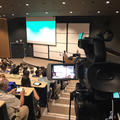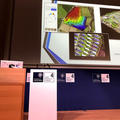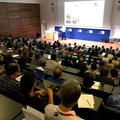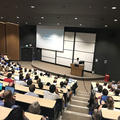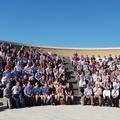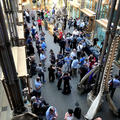ICTF Conference 2019
At the Mathematical Institute, on Tuesday 2nd July 2019.
The ICTF Conference is the University’s all-day conference for everyone at Oxford who works in ICT.
We’ll be using #ICTF19 on Twitter so follow @ICTF_Conference to find out what’s happening.
| Where | When | What | Who |
|---|---|---|---|
| Reception Area | 08:30 – 09:15 | Registration | |
| Lecture Theatre 1 | 09:15 – 09:20 | Introduction | |
| Lecture Theatre 1 | 09:20 – 09:30 | Welcome | Sean Duffy, IT Services |
| Lecture Theatre 1 | 09:30 – 10:20 | Plenary Talk 1 | Anne-Marie Imafidon |
| 10:20 – 10:25 | (move to Breakout Session A) | ||
| Various | 10:25 – 11:05 | Breakout Session A | |
| Open Area |
11:05 – 11:25 |
Coffee Break | |
| 11:25 – 11:30 | (move to Plenary Talk 2) | ||
| Lecture Theatre 1 | 11:30 – 12:20 | Plenary Talk 2 | Tobias J. Koch |
| Open Area | 12:20 – 13:30 | Lunch | |
| Lecture Theatre 1 | 13:30 – 14:20 | Plenary Talk 3 | Simon Richardson |
| 14:20 – 14:25 | (move to Breakout Session B) | ||
| Various | 14:25 – 15:05 | Breakout Session B | |
| Open Area | 15:05 – 15:25 | Coffee Break | |
| 15:25 – 15:30 | (move to Breakout Session C) | ||
| Various | 15:30 – 16:10 | Breakout Session C | |
| 16:10 – 16:15 | (move to Plenary Talk 4) | ||
| Lecture Theatre 1 | 16:15 – 17:05 | Plenary Talk 4 | Dave Coplin |
| Lecture Theatre 1 | 17:05 – 17:10 | Farewell and close | |
| Around Triton Fountain | 17:15 – 17:25 | Conference Photo | Delegates |
| 17:25 – 17:30 | (move to Evening Event) | ||
|
Blavatnik School of Government |
17:30 – 19:30 | Evening Event | Delegates and Speakers |
Anne-Marie Imafidon, STEMettes |
||

From child prodigy to MBE, Dr Anne-Marie Imafidon is Head Stemette and co-founder of Stemettes, the award-winning social enterprise inspiring the next generation of females into Science, Technology, Engineering, and Mathematics (STEM) roles via a series of impactful events and opportunities. One of the youngest ever to be awarded a Masters’ degree in Mathematics & Computer Science by the University of Oxford at age 20, Anne-Marie, unsurprisingly, continued to soar. In 2018 alone, she was listed among the top 50 women in tech in the world by Forbes, voted the 5th most influential woman in IT by Computer Weekly and was the recipient of the prestigious Barclays UK ‘Woman of the Year’ award. |
||
|
|
Tobias J. Koch, e-Estonia |
|

When Estonia started building its information society about two decades ago, there was no digital data being collected about its citizens. The general population did not have access to the internet or even devices with which to use it. It took great courage to invest in IT solutions and take the information technology route. Now it’s become obvious that the will and courage to experiment and get the mission of organizing public administration more efficiently, has been the basis for the Estonian digital transformation. Estonia sees the natural next step in the evolution of the e-state as moving basic services into a fully digital mode. This means that things can be done for citizens automatically and in that sense invisibly. In order to remain an innovative, effective and successful Northern country that leads by example, Estonia needs to continue executing its vision of becoming a safe e-state with automatic e-services available 24/7. |
||
Simon Richardson, IT Schools Africa |
||
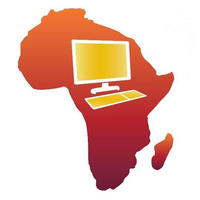
IT Schools Africa is a UK-registered charity operating in Africa and the UK with a mission to transform lives through access to e-Learning. What sets ITSA apart from other UK organisations sending refurbished computers to Africa is its uniquely holistic approach. In the UK, the programme supports the local community - working with prisons, the unemployed and schools - to refurbish computers, clean them of data and prepare them for shipping. In Africa, the programme delivers IT teaching training and technical support to all recipient schools and deals with the final disposal of computers in an environmentally friendly way. |
||
|
|
Dave Coplin, The Envisioners |
|
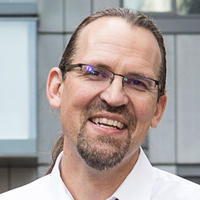
Dave helps organisations and individuals to see the full potential that technology offers to a modern, digital society. He doesn’t focus on the technology itself. But on the humans who use it. He is known for being positive, encouraging, engaging, challenging and upbeat about the future including AI, big data, digitalization and much more, looking towards The Future of the World of Work. He looks at “humans plus machines” to combine the best of both. Not “humans versus machines”. His view is not nihilistic: it’s not Armageddon or “the Terminator”. His work as a published thought leader allows him to begin new conversations with audiences to resonate at all levels about the changing nature of work, which requires greater flexibility, collaboration, creativity and innovation. |
||
Breakout Session A
Dr. Sibel Allinson (Sr. Project Manager, UIS, Cambridge)
How can better, cheaper and faster co-exist? Agile and Lean are wildly popularized in the software development space for helping teams deliver faster and more sustainably. Agile development is a process for rapid software delivery that is connected to many Lean principles. Lean encourages teams to deliver fast by managing flow - limiting the amount of work-in-process to reduce context switching and improve focus. Agile teams manage flow by working in cross-functional teams on delivering one iteration at a time, where the value could be created in a very short time and continuously. This presentation will provide examples of the contrasts and overlaps, and try to answer some of the resulting and pressing questions.
Xavier Laurent, Christina Kuhn and Stephen Taylor (University of Oxford)
Dr Christina Kuhn recently introduced Virtual Reality (VR) teaching to Ancient History students in the Humanities Division at Oxford. Student feedback was positive throughout: they agreed that unlike most visual media, VR really brought the past to life. This session will show how virtual reality can be used in a university teaching context and assesses to what extent the students’ learning experience and understanding of a topic can be enhanced by providing them with fully immersive experiences.
Michael Hauser (Deputy IT Manager, Robinson College, Cambridge)
A good defence has always been crucial to maintaining a good secure network. The usual paraphernalia (using firewalls, strong passwords, not using administrator/root accounts persistently, VLANs, IDS, IPS, updated Antivirus, Anti-malware, patched systems, NATing, 2 Factor Authentication, etc.) is simply not enough today. As IT we need to succeed always, whereas the attacker needs to succeed only ONCE! Enter the “deception platform” to help you in the battle of good vs evil!
Chris Mackie (Nexus Team, University of Oxford)
This talk is all about Microsoft Teams. Come along see how Teams works, find out what is new and how you could benefit from using Teams. There will be some interactive elements to this talk so please bring a device that can access N365 Teams.
Graham Ingram (University of Oxford)
A mirage is an act of physics which can occasionally play on the desperation of a person due to the situation they are in. The security mirage is an act of technology which always plays on the needs of a person executing processes in everyday situations. Like the physical world, the information security reality is often different to perception. The journey toward our goals can feel like a slog. But the real threat is to give up and succumb to the environment; we must keep going and search for that elusive oasis.
Dave Smith (IT Services, University of Oxford)
Over the last 6 months in IT services, Dave has been leading an exercise to develop a common storage reference model. The big idea was to see if it could be used to tease out shared requirements across a number of projects and then help identify common solutions to solve all/part of their requirements.
Dave believes that you might find the approach useful in other areas of IT so if you are looking at sharing, reusing or removing technology then come along .
Breakout Session B
Thomas Briggs (Bletchley Park)
A potted history of Bletchley Park's codebreaking operations in World War II, including the demonstration of a real, working Enigma machine.
Mike Boyce (Education VR)
Take a look at a virtual reality education platform, Engage, and gain a better understanding to how lessons can become more interactive by using this technology. Mike will walk you through how easy it is to use IFX objects to make learning more engaging and how desktop streaming, cloud media playback including 360 video can allow you to have 36 students present in the same room for a lecture.
Engage uses embodied avatars, users can feel physically present with each other, regardless of their real-world geophysical location, to communicate, collaborate, learn and receive ‘hands-on’ training. Engage allows any interactive virtual environment to be created, whether it be a replication of a real-world workspace or a place in which it would be impossible, dangerous or cost prohibitive to visit in real life for example the ancient Rome or a disaster zone.
Andrew Dixon (University of Oxford)
The service value system is a key component of ITIL 4, which facilitates value co-creation. Andrew will explore how this idea that we create value in partnership lies at the heart of IT at Oxford as well as at the heart of the new ITIL 4 framework.
Anna Langley (University Computer Officer, UIS, Cambridge)
Using a long-established "Friendly Probing Suite", a computer probing system run by the University of Cambridge's Information Services (UIS) on machines connected to the University Network, regular reporting has been provided to help detect insecure systems which might be the target of hackers. In the face of a steep price rise and a downgrade to the API the UIS decided to change its scanning software from Nessus to the free OpenVAS. This talk is about what led to that decision, how we have implemented it, and the kind of alerts and reports it can produce.
John Noctor (Service Desk Institute)
SDI auditor and trainer, John Noctor, is dedicated to driving customer success and delvering the magic of great customer experiences. As an evangelist for continual improvement and with the belief in making things better, John will explore how service desks can better manage the customer experience (CX) and better demonstrate the business value a great CX strategy can deliver. What are the measures of success and KPIs that should underpin every service desk's CX strategy, how can we integrate CX with our service management processes to ensure they are customer-centric and, finally, how do we integrate results with quality assurance and improvement activities, using ongoing feedback to drive successful business outcomes?
Fawei Geng and Xavier Laurent (University of Oxford)
This will be an informative and fun session which helps you to learn more about the new University Virtual Learning Environment – Canvas. After a short demo, the audience will be involved in a ‘University Challenge’ style activity to find out how Canvas can enhance the student learning experience at Oxford.
Breakout Session C
Ran Michaeli (Keble College, University of Oxford)
During the workshop, Ran will be sharing his experience managing small and large-scale AV projects, and have an open discussion with the participants to share thoughts and workflows. The session is aimed at both IT and AV support staff.
Dr Marc Fabri (Leeds Beckett University)
This talk will introduce the challenges and opportunities many young autistic students encounter during their higher education journey. Details and findings will be presented from two EU-funded research projects: Autism&Uni which focused on the transition into university, and IMAGE which is currently ongoing and focuses on the transition out of university, into the workplace. Both projects have a strong digital angle with the design of online toolkits specifically aimed at autistic students.
Both projects champion two important principles: Firstly, a strength-based view of autism that focuses on skills and abilities rather than deficits. And secondly a universal design approach to learning that provides choices, depending on an individual's preferences and abilities. This puts the onus on universities to consider how established practices and technologies must change to fully support autistic students in an inclusive way - and any other group of students.
Jonny Austin (Micro:bit Educational Foundation)
This ‘talk’ is very hands-on. Jonny will bring some micro:bits with him and you will have the opportunity to see what they do. (Bringing your own device with USB input would be beneficial) Or perhaps you are just interested in having a very gentle introduction to programming.
Pradyumna Dash - AWS Solution Architect ; Public Sector Anjanesh Babu - Systems Architect and Network Manager ; Gardens and Museums
The session will begin with an introduction to AWS services within the context of the Oxford University and a demo of a live service. The technical relationships between the public cloud and on premise solutions are intended to discussed to be followed by how the GLAM Digital Programme's one year experience of public cloud in AWS. If you are thinking of adopting public cloud and have questions relating to a real world experience within an Oxford University department along with an technical introduction to the world of AWS - this is where you want to be.
Thomas Briggs (Bletchley Park)
An exploration of Enigma’s lesser-known cousin, Lorenz, and the thought processes that led to its breaking.
Ronald Haynes (University Computer Officer, Cambridge)
Rapid developments in digital library collections, particularly with extensive adoption of the International Image Interoperability Framework (IIIF), have helped substantially establish standards for digitally sharing (and preserving) art, books, manuscripts and other 2D materials. Web-based viewers enable reassembling of originals or creation of composites from remote pieces. The IIIF 3D Community includes key projects which present 2D images and 3D models together using web-based viewers, use a mainstay file format, and have inbuilt concern for digital preservation. Alongside this, WebXR is evolving as a development and delivery standard by major organisations, and can form part of a collaborative AR initiative (Veholder.org) to help blend and extend the existing collections. Working with libraries and museums in several universities, the 2D and emerging 3D standards will guide a proposed joint project to bring together Charles Darwin's writings and instruments with an AR reuniting of his separated botanical, geological and zoological samples.

|
AWS - Amazon Web Services (AWS) is a subsidiary of Amazon that provides on-demand cloud computing platforms to individuals, companies and governments, on a metered pay-as-you-go basis. |

|
Blue Helix - Blue Helix offers a complete range of fibre and copper networking products from the world's leading manufacturers. |
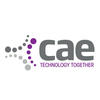
|
CAE - CAE Technology Services is an IT infrastructure solutions provider. Our role is to enable the adoption of relevant technology. |

|
Dell - Dell provides technology solutions, services & support. |
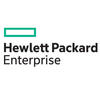
|
Hewlett Packard Enterprise - IT transformation solutions that use the right mix of technologies, partners, services and financial models to help you thrive. |

|
Khipu - Cyber Security Specialists. Experts in delivering world class secure networks across all market sectors |
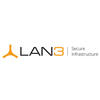
|
LAN3 - LAN3 focus on the design and management of secure network infrastructure, across the Campus and Data Centre for enterprise, health and academia. |

|
Lenovo - Lenovo are dedicated to transforming customers’ experience with technology—and how it, and they, interact with the world around us. They call this Intelligent Transformation. |
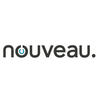
|
Nouveau Solutions - Nouveau Solutions is a specialist IT managed services company with a strategic focus on delivering cloud, infrastructure, compliance, network and security solutions. |
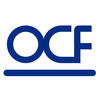
|
OCF - Creating high performance computing, storage and data analytics that truly meet your needs |

|
Qolcom - Qolcom selects market-leading products to address the current and emerging needs of our customers in the converging areas of corporate networking and the management of mobile devices. |

|
Switchshop - Switchshop is one of the UK’s leading providers of IT networking, security and VoIP telephony hardware and solutions. |

|
Western Digital - Western Digital is a leading provider of storage solutions, hard drives and Network Attached Storage devices for backup, sharing and storing the worlds data. |
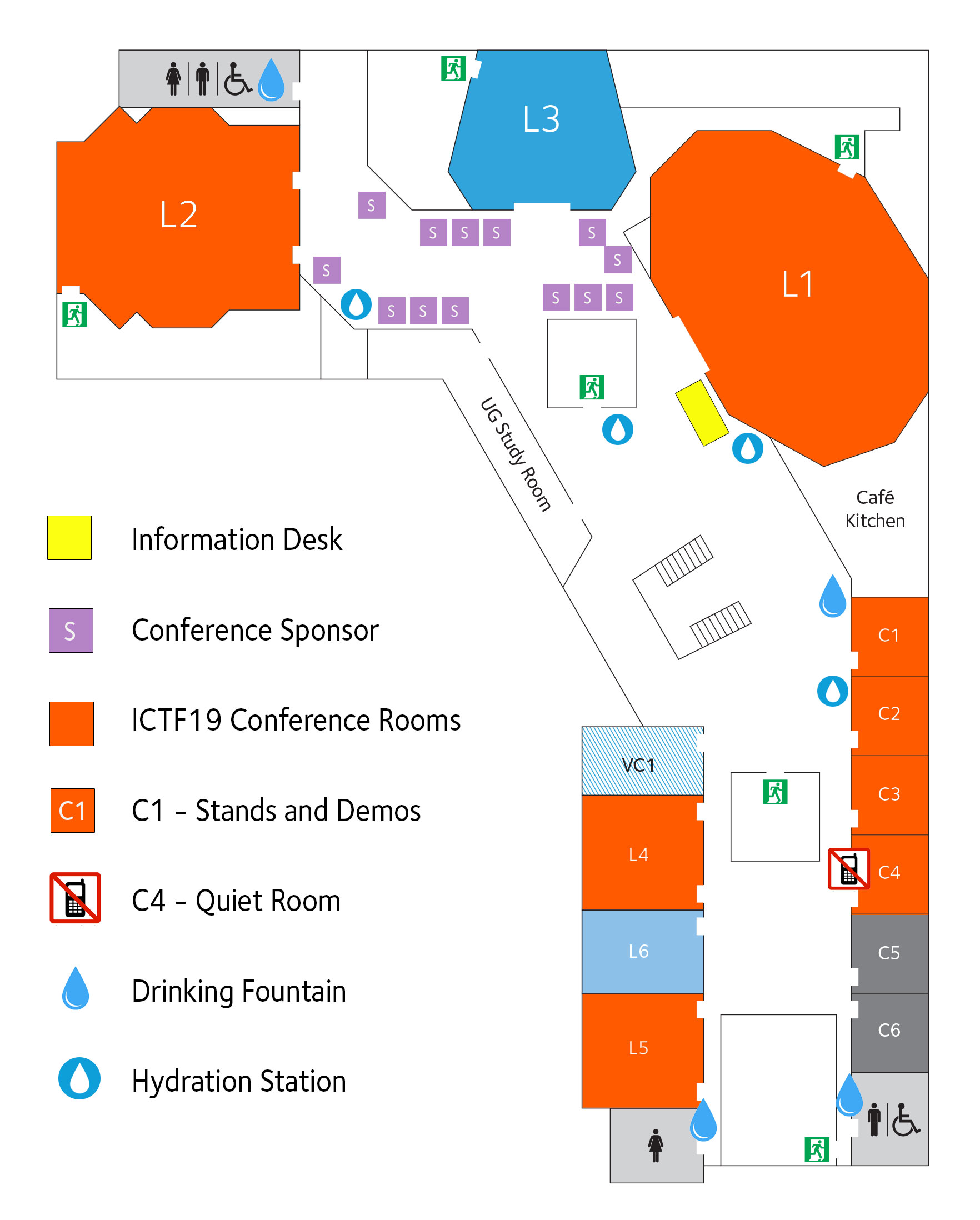
C4 - Quiet Room available for conference attendees at ICTF Conference
This year, the ICTF conference committee has provided a Quiet Room for conference attendees who want or need to take a little time out to check emails, review their notes about sessions attended, or who need a quiet space for any other reason.
Please show respect to other users of the room and do not use it to make phone calls or to hold meetings or conversations.
Location
Evening Event
Blavatnik School of Government - 4th Floor Common Room and Terrace
Come and join us for a drink, served in the 4th Floor Common Room and on the Terrace with stunning views of the Oxford Skyline.



